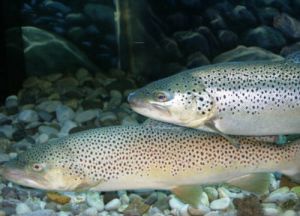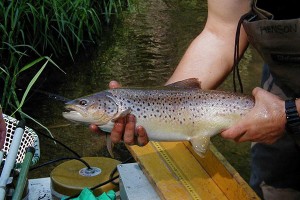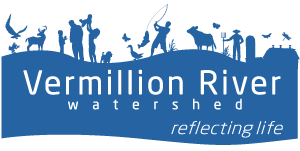- Categories
-
Tags
"State of the River" Report 2018 budget 25 by 25 Ag Water Quality Certification agriculture ais Alimagnet Angry Inch Angry Inch Brewery Apple Valley Apple Valley Senior Center aquatic invasive species astronomy bird watching board meeting buckthorn removal Burnsville Carpenter Nature Center Carpenter St. Croix Valley Nature Center citizen advisory group Clean Water Summit 2016 cleanup climate Coca-Cola Refreshments in Eagan Minn. Community Advisory Committee community event Conservation Minnesota County Fair CP Adams Park Dakota County Dakota County Parks Dakota County SWCD de-icing workshop Eagan Earth Day exhibits Farmington field day fishing Fix-It Clinic FMR Fortin Consulting Freshwater Society Friends of CNC Friends of the Mississippi River Governor Dayton Greenway groundwater Hastings Hastings Environmental Protectors Hastings Sand Coulee SNA information meeting invasive species removal Inver Grove Heights irrigation Joint Powers Board Kevin Smith Lake Marion Lakeville landscape for the river landscaping for clean water lawn and garden lawns maintenance MAISRC Master Water Stewards Mike Lynch Minnesota Department of Natural Resources Minnesota Institute of Astrophysics Minnesota Landscape Arboretum minnesota pollution control agency Minnesota StarWatch Mississippi River MPCA MWS native plants nitrates North Creek Parks Pine Bend SNA planting for clean planting for clean water pollinators prairie seed collection private wells projects public hearing public meeting rain barrel rainbarrel raingarden redevelopment rosemount salt sand coulee SNA Schaar's Bluff Gathering Center scientific and natural area Scott County scott swcd shoreline Smart Salting snow and ice best practices South Branch Vermillion River Spring Lake Park St. Croix Valley Bird Club star map starry stonewort starry trek stormwater retrofits SWCD TAG Technical Advisory Group Technical Advisory Group (TAG) tour town hall township officers Trevor Russell trout stream Trout Unlimited TU turfgrass maintenance Twin Cities Trout Unlimited UMN Extension University of Minnesota urban urban best management practices Vermillion Falls Park Vermillion River Vermillion River Aquatic Management Area Vermillion River Watershed Vermillion River Watershed Joint Powers Organization Vermillion Riverkeepers Vermillion Stewards volunteer VRWJPB VRWJPO VRWPC water conservation water quality Water treatment watershed management Watershed Plan watershed planning commission Watershed Planning Commission (WPC) We Are Water MN Whitetail Woods Regional Park winter road maintenance WPC
Lakeville Earth Day Celebration and Watershed Cleanup
Bring your family, your neighbors and friends! Fun for all ages!
Visit the various education stations and learn about what you can do to help make a difference in our city and for the Earth as a whole. The education stations include information on the following:
- Aquatic invasive species
- Prairies
- Pollinators
- Recycling
- Water quality
- Watersheds (that’s us)
- And more!
As you visit the stations, you will earn the chance to get Earth-friendly prizes and are sure to have lots of fun along the way.
Other activities include:
- Zoomobile
- Puppet shows
- Garden tool swap: If you’re in need of new to you gardening tools OR looking to get rid of excess (but still useful) gardening tools, there will be a garden tool swap at the entrance of the event where you can leave and take what you would like.
Watershed Cleanup info:
You and/or your group can start the pickup on April 20 at 1 p.m., or you can schedule a more convenient time, as long as it is before dark on April 30. Sign up here and be sure to mark on the map where you plan to clean up.
Free nitrate testing for well water on April 26
For testing, bring a water sample to the free walk-in clinic at the Scott County Fairgrounds in Jordan, MN. This event is supported by the Minnesota Department of Agriculture and the Scott SWCD. It is held in conjunction with the Scott SWCD’s tree pickup. This clinic is free and open to the public; no appointments are necessary.
How to take your sample
NOTE: For best results, collect your water sample anytime within 24 hours of the clinic and keep the water cool.
-
Run the cold tap faucet for three minutes
-
Collect about one cup of water in a clean glass jar or other container. (Disposable containers are OK but recyclable/glass containers are preferred)
You may also collect neighbors’ or relatives’ samples and bring them in for analysis. Participants can bring in as many samples as they would like.
If you have a water treatment unit that reduces or removes nitrate—such as a reverse osmosis unit or a distiller—feel free to collect a sample before treatment and after treatment to ensure your system is working properly. If you have a water softener in your home, it is not necessary to collect a sample from that before treatment, as softeners do not reduce nitrate.
On the day of the clinic

South Branch Vermillion River Habitat Day
Join Twin Cities Trout Unlimited as they help the DNR improve the Vermillion River and this Aquatic Management Area for wildlife and anglers.
Work will include:
-Removing buckthorn, honeysuckle and other invasive species
-Pulling debris out of the water
-Picking up trash
Bring heavy work gloves and a willingness to work hard and maybe get wet!

Vermillion River-Kummer AMA Habitat Day
This event is part of Twin Cities Trout Unlimited’s Vermillion River Initiative-a focus on protecting and enhancing this cold water stream so near to the Twin Cities! Join us TCTU as they help the DNR continue to restore the Vermillion River & this Aquatic Management Area for wildlife.
Work will include:
-Removing buckthorn, other invasive species and boxelders
-Dragging and dropping the brush into piles
-Picking up any trash we find
Bring heavy work gloves and a willingness to work hard.
There won’t be any in-water work, but we’ll be able to keep our eyes open for trout!
In case this is cancelled, the back-up day will be June 8, same time and place.
VRWJPO at Dakota County Fair
Visit with VRWJPO and environmental partners at the Dakota County Fair’s Natural Resources Building, August 5-11, 2024.
Irrigation Water Testing – Vermillion (city)
Dakota County, the Dakota County Soil and Water Conservation District, and the Minnesota Agricultural Water Resource Center will be offering farmers who irrigate their crops the opportunity to test their irrigation water for nitrogen. Testing is at no cost.
Participants will receive their results the same day. They will learn how to credit nitrate in their irrigation water for next year’s nutrient management plans. Participants will also walk through the Irrigation Management Assistant (IMA) Tool with a SWCD staff member. The tool helps with irrigation scheduling.
Private well owners can also have their drinking water tested for nitrate. They will receive their results and treatment recommendations, if applicable.
Sampling instructions for irrigators
Samples may be taken the day of analysis or ahead of time. Samples taken ahead of time must be frozen until attending a session to prevent samples from degrading.
Participants may bring in several frozen samples collected over a period of several days to get a more representative result.
Samples can be collected directly from irrigators or by installing a boiler drain to a pivot point or the well itself.
If sampling directly from irrigators:
- Allow irrigators to pump water for at least 15 minutes before sampling.
- Fill a clean 5-gallon bucket, or similar container. Mix before collecting the sample.
- Collect the test sample in a small Ziploc bag or a clean bottle or container. Only about 1 ounce of water is needed for testing.
Sampling instructions for private well owners
- Collect samples from your primary drinking water source after eight hours of nonuse, preferably first thing in the morning
- Collect your sample in a small Ziplock bag or clean bottle or container
- Do not run the water before sampling — collect the first draw in the container
- Only about 1 ounce of water is needed for testing, but collecting extra is advised.
Test results
Nitrogen results are confidential. Participants are not required to take any action after testing. They will receive their results and information on nitrogen crediting.
Irrigation Water Testing – Farmington
Dakota County, the Dakota County Soil and Water Conservation District and the Minnesota Agricultural Water Resource Center will be offering farmers who irrigate their crops the opportunity to test their irrigation water for nitrogen. Testing is at no cost.
Participants will receive their results the same day. They will learn how to credit nitrate in their irrigation water for next year’s nutrient management plans. Participants will also walk through the Irrigation Management Assistant (IMA) Tool with a SWCD staff member. The tool helps with irrigation scheduling.
Private well owners can also have their drinking water tested for nitrate. They will receive their results and treatment recommendations, if applicable.
Sampling instructions for irrigators
Samples may be taken the day of analysis or ahead of time. Samples taken ahead of time must be frozen until attending a session to prevent samples from degrading.
Participants may bring in several frozen samples collected over a period of several days to get a more representative result.
Samples can be collected directly from irrigators or by installing a boiler drain to a pivot point or the well itself.
If sampling directly from irrigators:
- Allow irrigators to pump water for at least 15 minutes before sampling.
- Fill a clean 5-gallon bucket, or similar container. Mix before collecting the sample.
- Collect the test sample in a small Ziploc bag or a clean bottle or container. Only about 1 ounce of water is needed for testing.
Sampling instructions for private well owners
- Collect samples from your primary drinking water source after eight hours of nonuse, preferably first thing in the morning
- Collect your sample in a small Ziplock bag or clean bottle or container
- Do not run the water before sampling — collect the first draw in the container
- Only about 1 ounce of water is needed for testing, but collecting extra is advised.
Test results
Nitrogen results are confidential. Participants are not required to take any action after testing. They will receive their results and information on nitrogen crediting.


